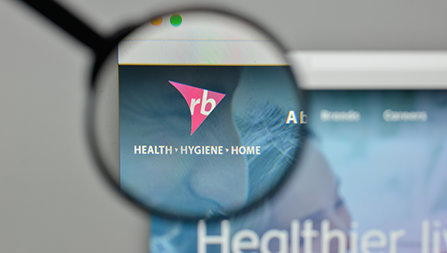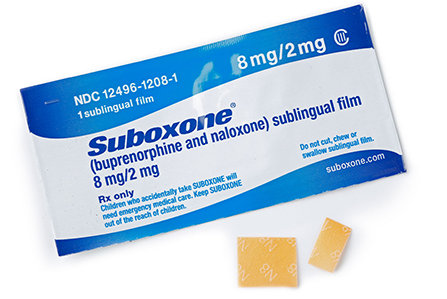Suboxone Maker to Pay $1.4 BILLION to Settle Illegal Marketing Claims

In July 2019, pharmaceutical company Reckitt Benckiser Group (RB Group) agreed to pay an astonishing $1.4 billion dollars to settle accusations that it fraudulently marketed its addiction treatment drug, Suboxone. But although this is the highest-ever settlement as a result of an opioid claim, why doesn’t this huge fine actually result in justice?
In the rest of this article I’ll break down the reasons for this lawsuit and why Suboxone is still being freely distributed. As you read it, I ask that you please keep in mind that this is the company that many, many families are trusting with the recoveries of their loved ones.
What is Suboxone?
Suboxone is a prescription drug distributed in the form of a film that is placed inside the cheek to dispense the opioid buprenorphine and naloxone, a second drug intended to prevent misuse by an addicted person. When used as part of a treatment program, the addicted person is still taking an opioid but does not go through withdrawal sickness. He or she is still consuming and is addicted to buprenorphine instead of heroin, hydrocodone or whatever opioid they were taking before.

What Was RB Group Accused of?
The RB Group was thoroughly investigated by the federal government for the following misdeeds:
- The company promoted the sale and use of Suboxone to physicians who were more likely than others to prescribe this drug in unauthorized and illegal ways. For example, the practitioners were not providing any counseling or support for their opioid-addicted patients, although this is how Suboxone is supposed to be prescribed for those in recovery from opioid addiction.
- RB Group used misleading and false claims that their new product, Suboxone in a dissolvable film, was less susceptible to diversion (being diverted to illegal use) or abuse by a person addicted to opioids than other forms of buprenorphine.
- RB Group also promoted to practitioners that their film was less likely to result in accidental pediatric exposure than the Suboxone tablets that the RB Group had previously been manufacturing and marketing. This claim was never substantiated.
- In 2012, the company requested that the FDA discontinue their approval of the tablet formulation of Suboxone, claiming that the tablet (that RB Group had sold for years) was more likely to result in pediatric exposure to this drug. This request came just after the company released its new Suboxone film. In their news release on this settlement, the Justice Department notes that this request was made despite company “executives” knowledge that the primary reason for the discontinuance was to delay the Food and Drug Administration’s approval of generic tablet forms of the drug.“ In other words, with RB Group’s patent running out, generic forms of the drug were about the become available and so RB Group tried to prevent competitive drugs from reaching the market.
- The Justice Department also notes that the company also “took other steps to delay the entry of generic competition for Suboxone in order to improperly control pricing of Suboxone, including pricing to federal healthcare programs.“
Of course, as part of this settlement, RB Group is not required to admit fault or wrongdoing. They pay $1.4 billion and the accusations go away.
What Is RB Group Doing Now That the Lawsuit Is Settled?
Here is a very important point to grasp: As part of the settlement, RB Group agreed to not manufacture, market or sell any Schedule I, II or III controlled substances. This means they can’t sell any opioid drugs, among others. So no buprenorphine.
But Suboxone is still being handed out to people every day. Why? It has to do with the separation of RB Group from Invidior PLC, a UK corporation. Until December 2014, Invidior was a wholly-owned subsidiary of RB Group. That month, RB Group spun off Invidior. For now, Invidior continues to supply Suboxone film to any of the more than 30,000 practitioners licensed to distribute it to those who are addicted.
The Substance Abuse and Mental Health Services Administration does not publish the number of people currently receiving Suboxone as part of their addiction treatment so it is not possible to estimate how many people take this drug or Invidior’s current profits.
Invidior’s actions have also been the subject of federal government investigation. As of this writing, they are due to go to trial in Virginia in May 2020.
After divesting themselves of Invidior, RB Group is focused on selling hygiene products. You might recognize some of their current brand names:
- Scholl foot products
- Mucinex congestion relief
- Clearasil acne creamx
- Enfamil baby formulas
- Strepsils throat lozenges
Invidior continues to sell Suboxone film, despite the fraudulent nature of the product’s early marketing. Simply because this company was “demerged,” as RB Group describes, the product with its initial dishonest and destructive marketing can continue to rake in millions of dollars, often from government-funded programs like Medicare and Medicaid.
Invidior continues to adamantly defend their turf. In 2018, the company won a temporary restraining order against two other companies that had received approval from the U.S. Food and Drug Administration to sell generic versions of Suboxone. But Suboxone film constitutes 80% of Invidior’s income so Invidior sued, claiming patent infringement. A U.S. District Court agreed that these two companies “infringed on Indivior’s patent” and so they were temporarily banned from selling generic Suboxone until patent litigation is complete.
And Finally…
In a completely ironic twist, the current RB Group website states: “Trusted by people worldwide – Our brands are available in nearly 200 countries and they’re trusted by people all over the world. This is because they make a difference in people’s lives; they make daily routines that bit easier, that bit better.”
I suppose since they did not have to admit wrongdoing, they can still make this claim.
Sources:
- https://abcnews.go.com/Business/suboxone-maker-reckitt-benckiser-pay-14-billion-largest/story
- https://www.samhsa.gov/medication-assisted-treatment/practitioner-program-data/treatment-practitioner-locator
- http://atforum.com/2018/06/samhsa-gives-no-information-on-how-many-patients-are-on-buprenorphine-or-how-well-they-are-doing/
- https://www.reuters.com/article/us-indivior-stocks/indiviors-shares-soar-33-percent-after-u-s-court-blocks-sale-of-rival-generic-idUSKBN1K60ZZ
- https://www.rb.com/brands/


 ®
®